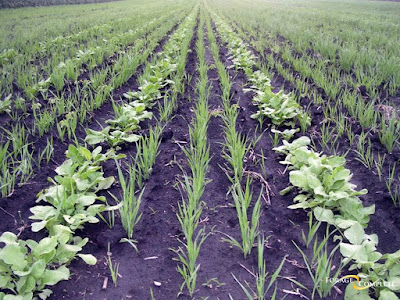Reasons Planting Cover Crops is Considered the Best Farming Practice

The adoption of farming practices which utilize organic and sustainable methods is no longer seen as a choice—it has become a necessity in many parts of the world. While it is an undeniable fact that chemical-based fertilizers and pesticides usher dramatically increased yields, they also degrade the quality of soil and pollute the underground water supply, both with potentially catastrophic long-term effects. We simply cannot continue to employ the traditional agricultural practices that involve exploitation of soil and water. Cover crops are plants which are introduced into fields to organically suppress many types of weeds, repel pests and improve soil quality and fertility. In addition to these benefits, farmers across the globe are recognizing the value of cover crops in increasing annual yields of organic commodities and also the prevention of soil erosion and harmful diseases. Any discussion of the sustainable future of agriculture must include mention of cove...
